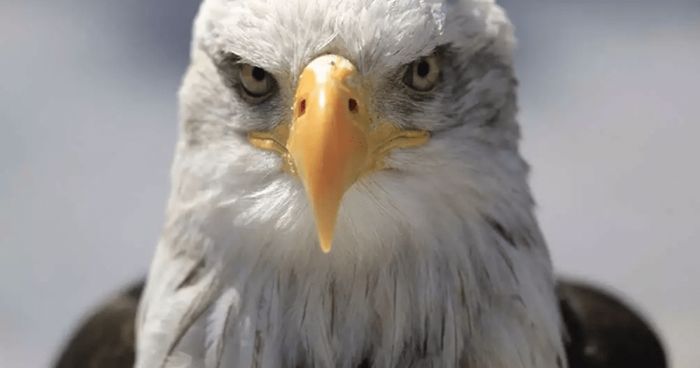
Bald Eagles Are Carrying Trash From A Landfill To Seattle Suburbs And People Don’t Know What To Do About It
Many humans are now focused on how they are going to clean up the planet before it’s too late to stop the climate change, from the #trashtag challenge to environmental initiatives led by organizations to even the Olympic committee – however, the bald eagles in Seattle are doing some reverse clean up and dumping trash in people’s yards across King County. The county is home to a landfill that has been full for almost two decades and is now being feasted on and spread around the area by the almost 200 birds of prey living there. Once threatened species a generation ago, the bird has made a comeback to about 10,000 nesting pairs – and for these King County residents – not without incident.
Bald eagles have been dumping trash from the Cedar Hills landfill in Seattle into suburban yards
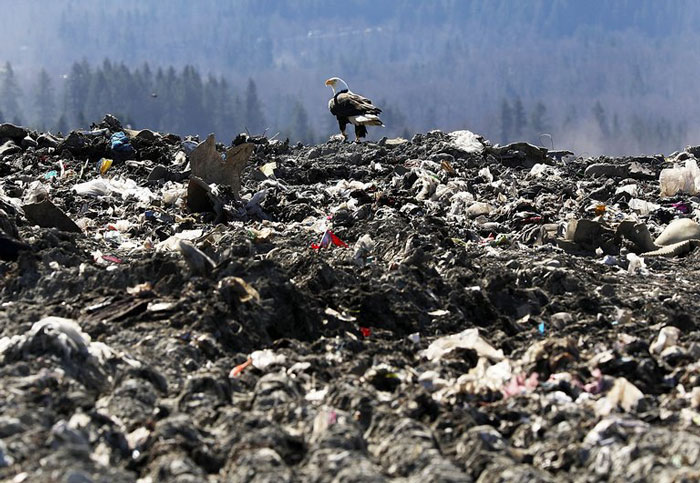
Image credits: seattletimes
2,500 tons of trash is deposited daily at the Cedar Hills Regional Landfill near Renton, although it has been near (at) capacity for decades. The county’s new Comprehensive Solid Waste Management Plan has been holding meetings on how to push back the estimated closing date back to around 2040, with a $270 million plan to expand the landfill site. But another concern remains – a “bird management plan.” During one of these meetings resident David Vogel, according to the Seattle Times, stated, “Anybody that lives within close flying distance of the landfill knows that the eagles deposit this stuff everywhere,” Vogel said. “The once-rare birds’ population has exploded in the last five years, and why? Because they have a free lunch at the waste disposal site.”
Image credits: Paxson Woelber
The bald eagles frequenting the landfill are a mixture of adult and juvenile birds. According to a study on landfill use by bald eagles, “immature birds learn foraging skills, including locating food sources, and food stealing by watching or following older birds and through experience.” Younger and sub-adult birds are not as skilled at foraging and hunting skills and are more likely to flock to landfills which provide an abundant foraging ground. Bald eagles are also more likely to congregate in landfills during the winter months when food is less plentiful.
Image credits: Seattle Weekly
Solutions have been discussed previously but the King County Council ordered up a study in April to see what could be done to prevent littering by the beautiful birds. “We’re not talking about calling in the guys from ‘Duck Dynasty,’” Reagan Dunn, vice chairman of the King County Council told the New York Times, “We’re trying to reduce the aerial bombardment that is happening to our neighbors.”
Image credits: Knotgood
Protecting the landfill also means protecting the eagles themselves. Landfills present health risks to these birds, who have died from consuming contaminated trash. This includes secondary poisoning from preying on the corpses of dogs and cats who have been euthanized with barbituates.
Image credits: Erik Drost
Bald eagles are not the only impetus residents have for wanting the landfill closed. Among their concerns are green-gas emissions from the decomposing garbage, possibly toxic liquids seeping through the oldest sections of the landfill into the aquifer and the smell.
People thought the story was funnier than the residents of King County did
18Kviews
Share on FacebookThey're just giving it back and we deserve it. BTW, I had to chuckle at the residents' name David Vogel, Vogel means bird in german
In Europe, most household trash now gets burned...this stops landfills from using so much space, eliminates many toxins, wins energy, and makes sure that at least the non-burning parts (such as metals) are recycled. It is far from being an ideal solution (recycling or even upcycling almost everything would be better, reducing waste would be best), but it definitely is better than creating giant landfills that will prevail for thousands of years. I think in terms of waste management much more could be done...
Only positive point: These landfills will be very interesting for the archeologists of the future (if there will be one)
Load More Replies...I'm more worried that the birds natural food sources are disappearing and they have to resort to depending on the landfill. I'm not sure it's possible for me to care less about the trash they are leaving on people's yards.
It’s not that they can’t find food elsewhere, it’s like the story said.....It’s an easy meal for them, especially the younger birds who aren’t as experienced at hunting. That is why the Eagle population has exploded there. It’s a problem of too much to eat instead of not enough.
Load More Replies...That moment when eagles recognize pollution hazards before humans do
They're just giving it back and we deserve it. BTW, I had to chuckle at the residents' name David Vogel, Vogel means bird in german
In Europe, most household trash now gets burned...this stops landfills from using so much space, eliminates many toxins, wins energy, and makes sure that at least the non-burning parts (such as metals) are recycled. It is far from being an ideal solution (recycling or even upcycling almost everything would be better, reducing waste would be best), but it definitely is better than creating giant landfills that will prevail for thousands of years. I think in terms of waste management much more could be done...
Only positive point: These landfills will be very interesting for the archeologists of the future (if there will be one)
Load More Replies...I'm more worried that the birds natural food sources are disappearing and they have to resort to depending on the landfill. I'm not sure it's possible for me to care less about the trash they are leaving on people's yards.
It’s not that they can’t find food elsewhere, it’s like the story said.....It’s an easy meal for them, especially the younger birds who aren’t as experienced at hunting. That is why the Eagle population has exploded there. It’s a problem of too much to eat instead of not enough.
Load More Replies...That moment when eagles recognize pollution hazards before humans do
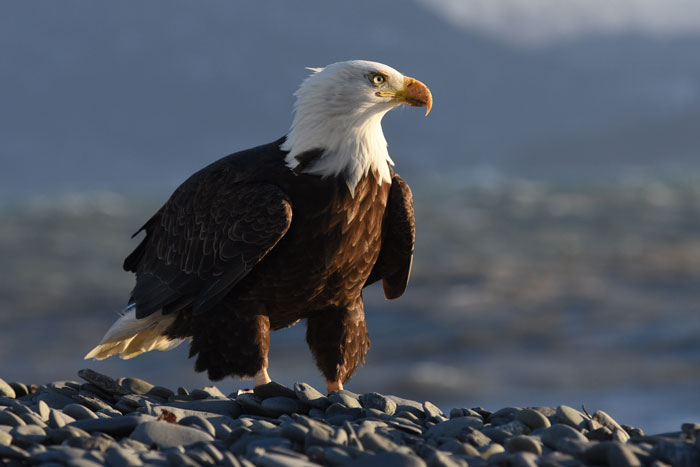
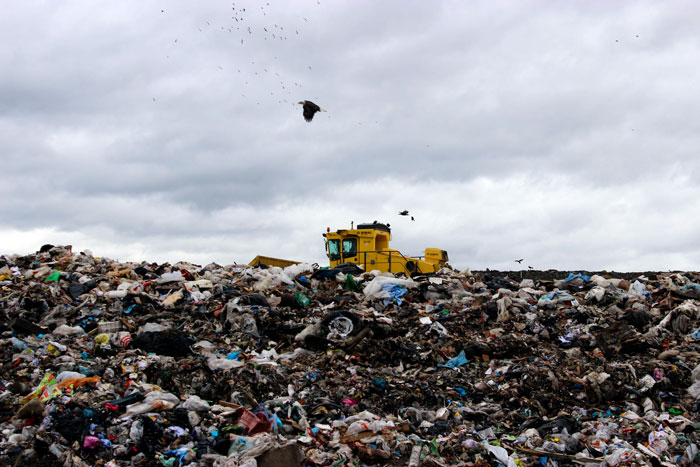
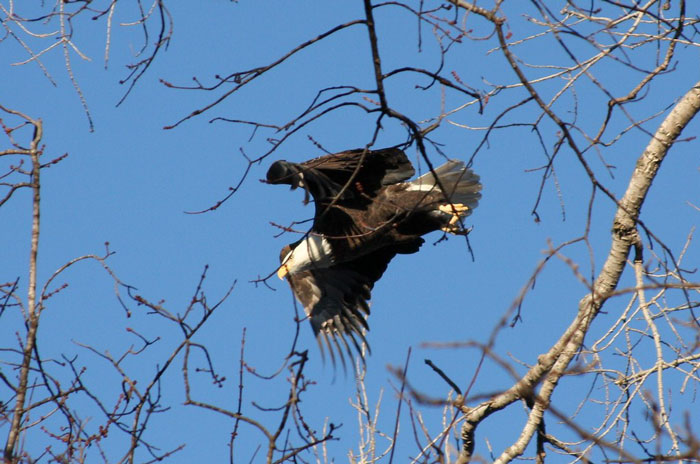
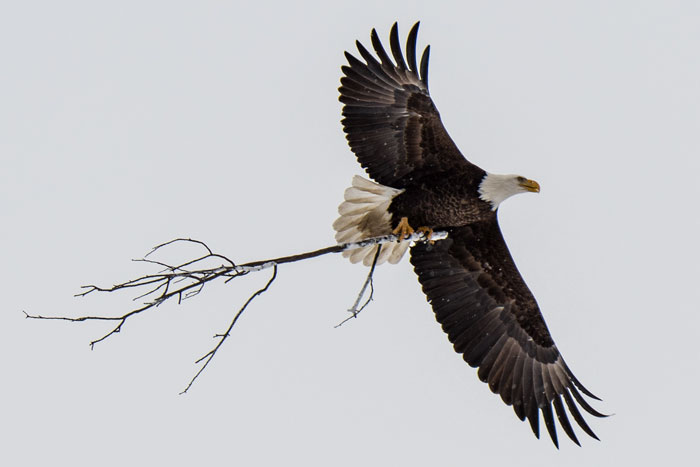

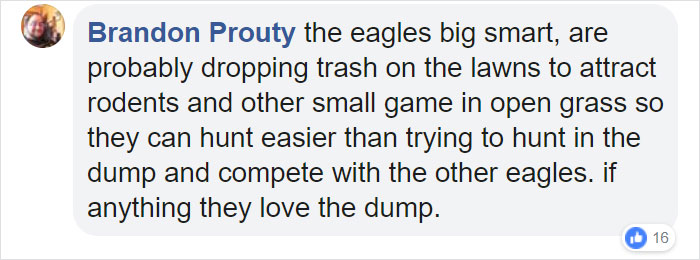









165
32